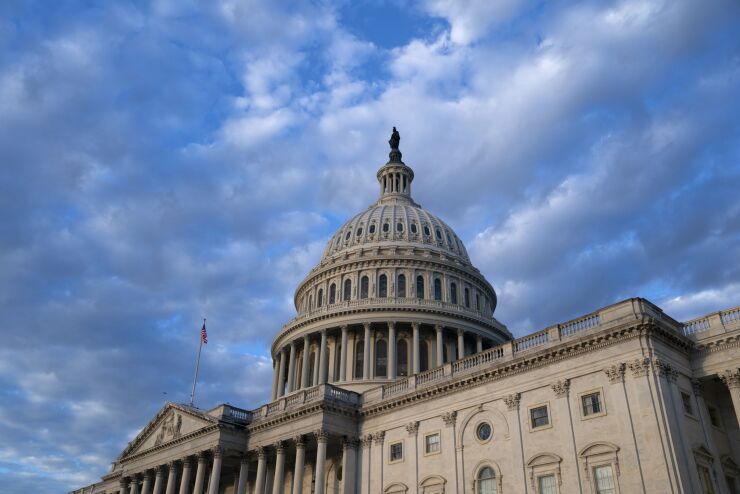The House Ways and Means Committee reported the
The
Congressional leaders had hoped to pass the $78 billion bill before tax-filing season officially starts next Monday, Jan. 29, but with continuing disagreement over some provisions, that's unlikely to happen. Last week, lawmakers on the committee introduced amendments to lift the $10,000 cap on state and local tax deductions from the Tax Cuts and Jobs Act of 2017 and allow the enhanced Child Tax Credit to provide monthly payments to families, as the American Rescue Plan Act of 2021 did for part of the year, but those were voted down in committee. However, behind the scenes, advocates are still hoping to get those items included, along with others.
"It's a compromise position," said Ken Kuykendall, tax leader and tax consulting leader at PwC US, which released a

The bill is mainly paid for by
The IRS recently introduced a voluntary disclosure program for taxpayers who may have mistakenly claimed the Employee Retention Credit, and it will need to decide how to integrate that program with the provisions in the new legislation. The IRS has offered ways to either
"If you're going to enter into the voluntary disclosure program, and if you have a payment in hand, and you want to return it, the first opportunity was to cancel your filing prior to receiving the payments," said Jennifer Rohen, a principal at CliftonLarsonAllen in St. Louis. "But if you have a payment, you can be part of the voluntary disclosure program, and return the funds, while retaining 20% plus any interest you received."
Under the program, employers will be asked about the promoters who bilked them by making exaggerated claims about the money available to them.
"It is encouraging employers who would not otherwise have returned the funds to now return them," said Rohen. "The IRS is really coming alongside them to lean in and say, 'Hey, taxpayer, we understand that you were misinformed about the program and you did the best you could to rely on the information available at the time. Now we want to encourage you to come forward because we can't fix what we don't know, so we really need to know who helped you file this claim that may have been inappropriate, or you're no longer comfortable with, but we are not going to punish you for that and have you return money that we may or may not be able to audit. You can keep your fees plus any interest.' I feel like it's a pretty generous program on the part of the IRS, and it also shows how seriously they're going after these promoters."
The IRS will have its hands full this tax season dealing not only with the ERC claims and disclosure programs, but also with the changing tax laws, as its funding again comes under threat. Tax clients in the meantime are hoping it will be another smooth tax season like last year after the IRS received billions of extra dollars as a result of the Inflation Reduction Act. In the meantime, many of them may already be counting on the extenders bill getting passed.
"I get the sense from just looking at clients that they were expecting or hoping for some of these extenders provisions to get extended or put in place," said Kuykendall. "Some of them are retroactive, so they relate to returns that have already been filed in some cases. Yes, there will be some challenges with going back and amending returns and dealing with those things, but I think that in general, people are prepared for the filing obligations that are coming with it. The relief that's coming here is welcome, probably welcome enough to make up for any sort of increased filing burdens that are out there."





